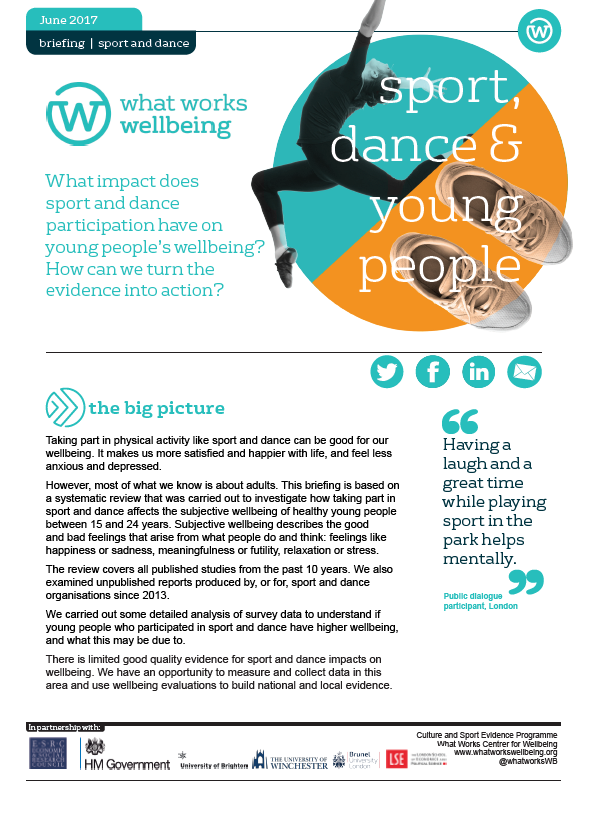Sport, exercise and dance can help improve mental health and wellbeing in 15-24 year-olds, shows a new study from the What Works Centre for Wellbeing.
Yoga and baduanjin-qigong, a Tai chi-like exercise, were shown to reduce anxiety, depression and anger, plus lengthen attention spans and raise overall wellbeing.
Group Wii Fit sessions meanwhile were shown to help encourage overweight young people exercise and make friends.
The findings also saw young women’s sense of self belief improve after exercise led by other young women, and aerobics and hip-hop make young people happier than ice-skating and body conditioning.
“We can see that sport, dance and other physical activity is potentially better for wellbeing because not only does it make us happy and give us a sense of purpose; it also improves health, which is very important in our overall life satisfaction,” said Nancy Hey, Director of the What Works Centre for Wellbeing.
“This is the first evidence review of its kind for sport and young people, and we would like to see more support for research and evaluation of the wellbeing benefits of physical activity happening in the UK, so we can build on this review and provide more evidence for policy makers and practitioners working with young people.”

The first evidence review detailing the impact that sports, dance and exercise have on 15-24 year olds’ wellbeing was carried out by researchers at Brunel University London, The London School of Economics and the Universities of Winchester and Brighton.
“The importance of understanding and addressing mental health and wellbeing issues in young people is gaining momentum,” said Dr Louise Mansfield, senior lecturer in Sport, Health & Exercise Sciences at Brunel University London.
“We are delighted to contribute to national conversations by showing evidence that being physically active through sport, exercise and dance improves young peoples’ happiness, confidence and sense of purpose.”
“This evidence can be widely used to help design physical activity programmes for young people, to promote wellbeing benefits and also to tackle wellbeing inequalities.”
Read the full evidence review here
Reported by:
Hayley Jarvis,
Media Relations
+44 (0)1895 268176
hayley.jarvis@brunel.ac.uk